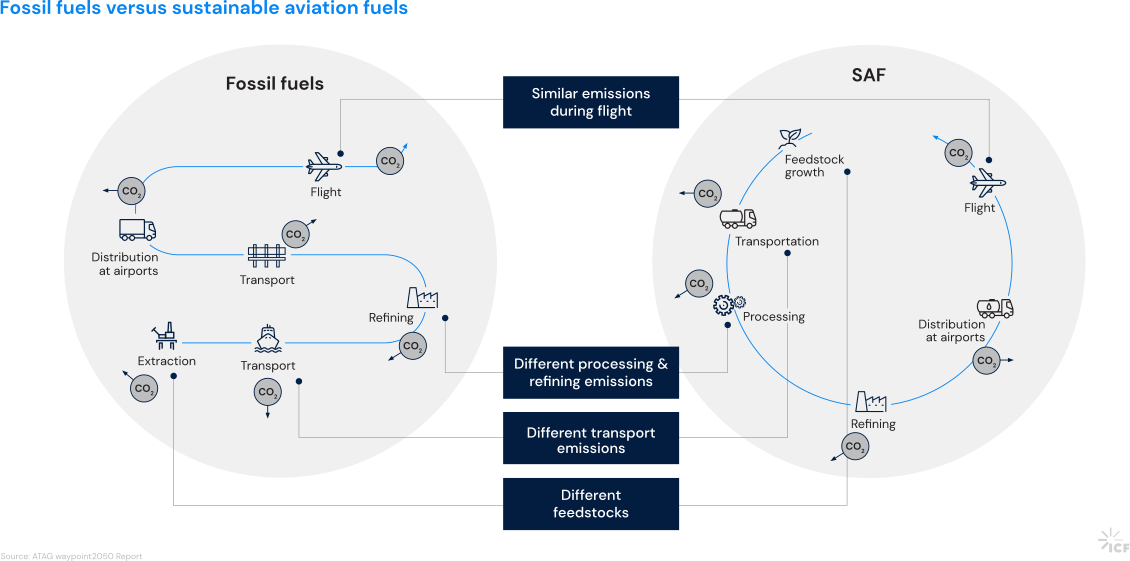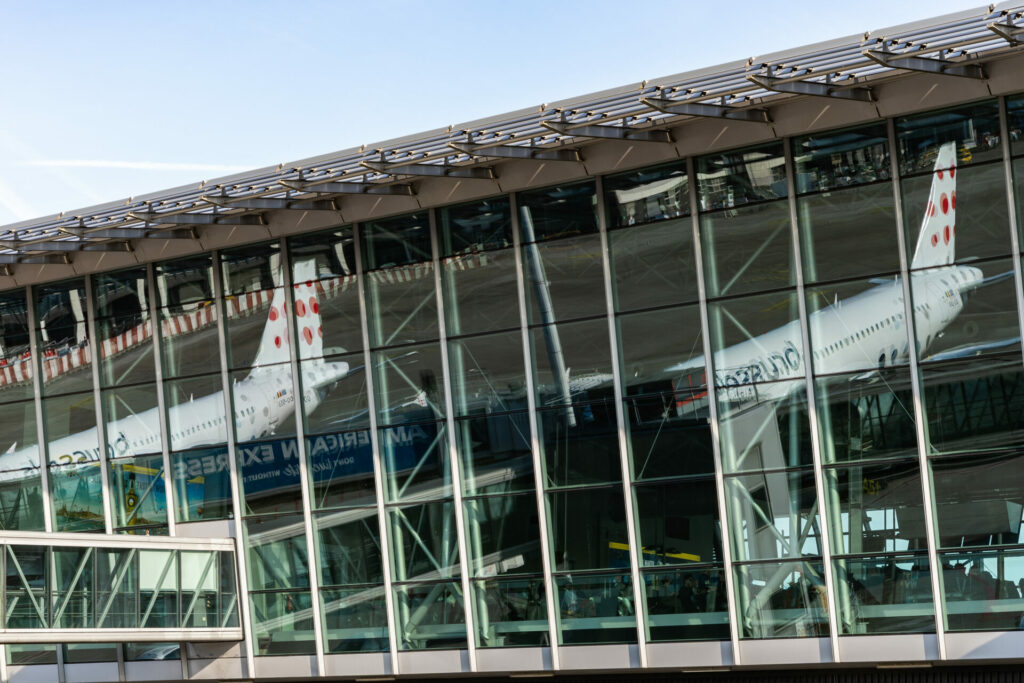Brussels Airport has become the first in Belgium to be fully supplied with kerosene and on Sunday operated the first "Sustainable Aviation Fuel" (SAF) flight from Brussels to Malaga.
On Sunday, the NATO pipeline (CEPS or Central Europe Pipeline System) supplying Brussels Airport with kerosene was opened for the transport of SAF. The event has been hailed by the aviation industry as one of the key elements in reducing emissions from air travel. The pipeline is deemed to be a fast and environmentally friendly way to supply fuel to further increase its use.
"To achieve our climate goals, we will have to drastically increase the use of alternatives to fossil fuels in the coming years," said Peter Gerber, CEO of Brussels Airlines, in a statement. In 2018, aviation produced between 2% and 3% of total CO2 emissions globally, comparable with Germany's national emissions caused by human activities.
"Next to fleet renewal, SAF is the most effective tool currently available to reduce emissions from air travel," Gerber added. The so-called non-conventional aviation fuel is derived from a range of feedstocks, including plant oils, used cooking oil, inedible fats, and municipal waste, which is converted through then blended with fossil fuels and used as a synthetic equivalent to kerosene.

Credit: ICF
SAF reportedly reduces greenhouse gas emissions by the aviation sector by up to 80% over the lifetime of the fuel compared to using fossil aviation fuel and is also less of a finite commodity than a fossil-fuel source. Brussels Airlines bought 200,000 litres of kerosene, of which 38% consists of synthetic fuel.
Beating EU target
Brussels Airport is the only Belgian airport that is fully connected to this pipeline network, which has supplied the airport since the 1990s. The company has repeatedly asked to receive not only kerosene but also SAF via this pipeline, which NATO, the pipeline's operator, has now agreed to.
Lufthansa Group, Brussels Airlines' parent company has already invested in the production and use of SAF for several years, however, the pipeline now allows for SAF to be transported from the blending facility to aircraft at Brussels Airport in a "fast and environmentally friendly way."
While the European target (as part of the Commission's ReFuelEU programme) aims to oblige 2% SAF on total kerosene imports from 2025 and 5% from 2030, Brussels Airport and its partners are aiming for 5% SAF by 2026, in part by making SAF readily available through the already available infrastructure at the airport and the NATO pipeline.
Related News
- Brussels Airlines records 28% increase in year-end bookings
- Ryanair strike: Passengers entitled to up to €600 in compensation
SAF cuts emissions by around 70-85% compared to using conventional fossil jet fuel. As it doesn’t require any infrastructure upgrades, it is a valuable medium-term solution for making the industry greener, however, for now, the usage of this fuel stands at just 1% of global fuel consumption, too small to make a meaningful change.

